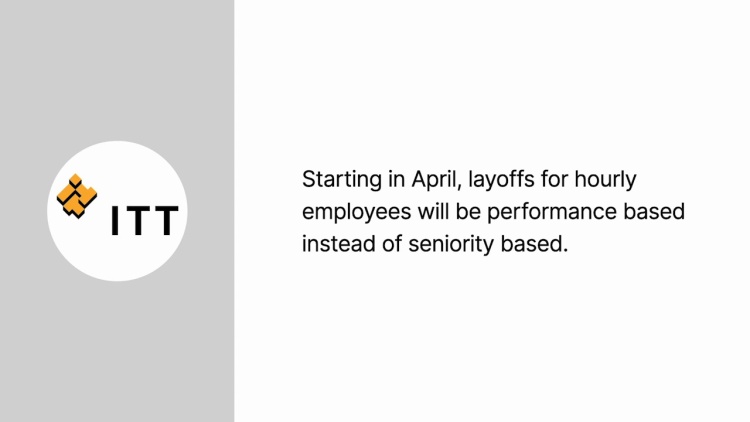Demasse v. ITT Corporation
Arizona Supreme Court
984 P.2d 1138 (1999)
- Written by Robert Cane, JD
Facts
Roger Demasse, Maria Garcia, Billy Jones, Viola Munguia, Greg Palmer, and Socorro Soza (the employees) (plaintiffs) worked for ITT Corporation (defendant) until 1993, when they were all laid off over a span of nine months. The employees were all hired as hourly workers between 1960 and 1979. ITT issued handbooks to its employees, most recently in 1989. The handbooks had established that hourly employees would be laid off based on seniority. The 1989 handbook included a new provision reserving ITT the right to modify the handbook at any time at its discretion, but ITT did not bargain with its existing employees for the inclusion of the modification provision. In 1993, ITT notified its employees of modifications to the layoff guidelines. The layoffs were to be based on each employee’s abilities and performance instead of seniority. ITT provided no additional benefits or compensation in exchange for this modification. Ten days after the layoff guidelines were modified, ITT began laying off employees with seniority. The employees filed suit in federal district court. The district court granted summary judgment in favor of ITT. The employees appealed. The federal court of appeals remanded the case to the Arizona Supreme Court.
Rule of Law
Issue
Holding and Reasoning (Feldman, J.)
Concurrence/Dissent (Jones, C.J.)
What to do next…
Here's why 907,000 law students have relied on our case briefs:
- Written by law professors and practitioners, not other law students. 47,100 briefs, keyed to 996 casebooks. Top-notch customer support.
- The right amount of information, includes the facts, issues, rule of law, holding and reasoning, and any concurrences and dissents.
- Access in your classes, works on your mobile and tablet. Massive library of related video lessons and high quality multiple-choice questions.
- Easy to use, uniform format for every case brief. Written in plain English, not in legalese. Our briefs summarize and simplify; they don’t just repeat the court’s language.





